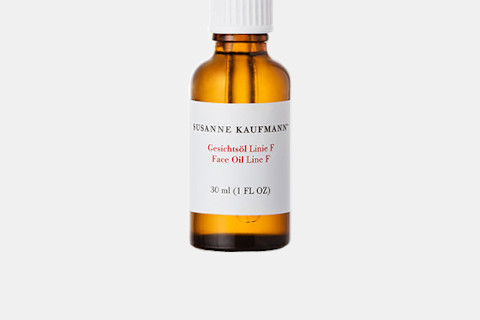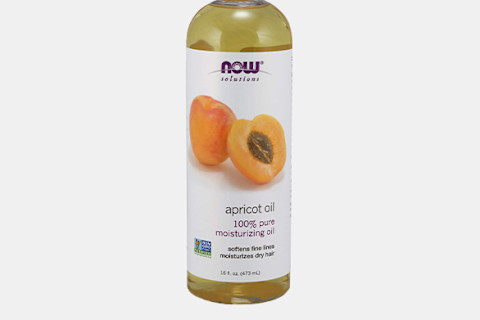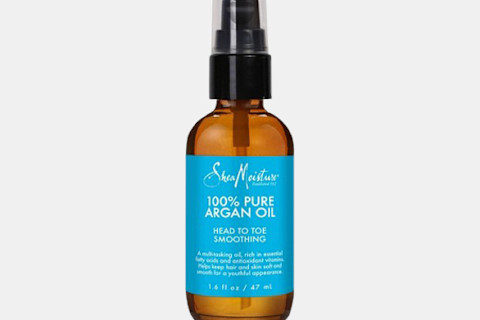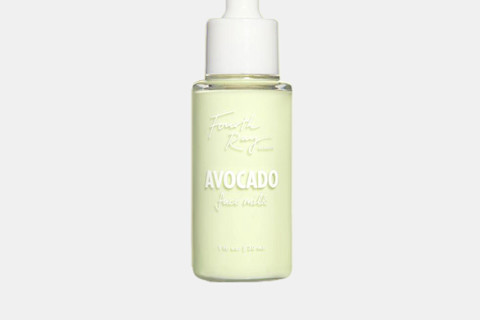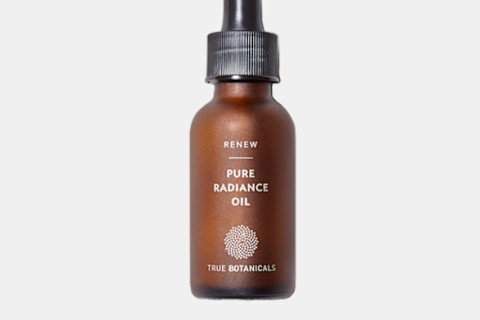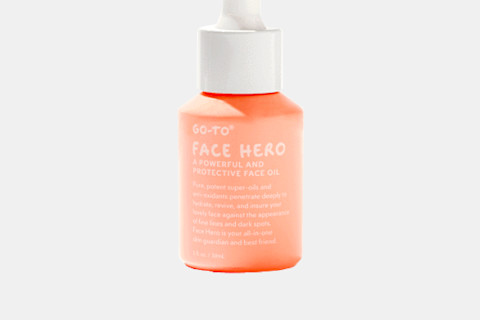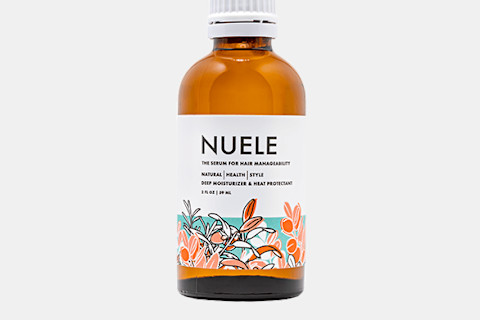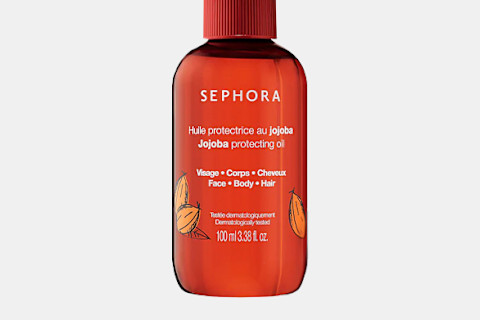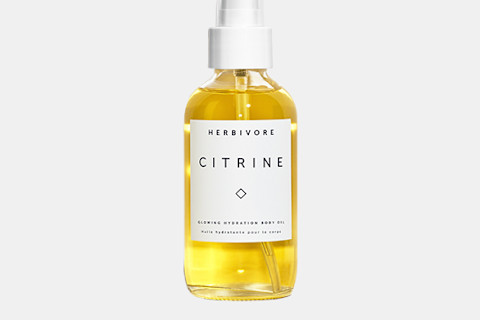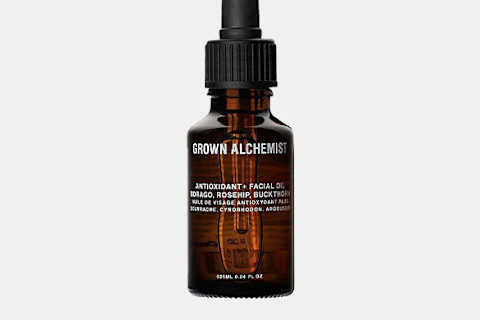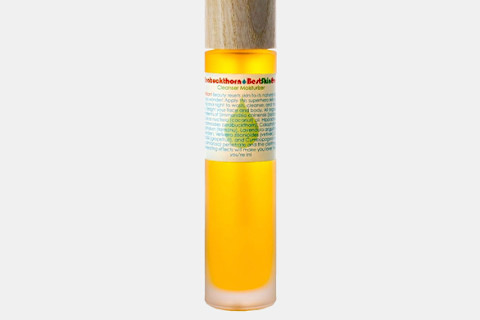The Best Face Oil For Your Skin Type + DIY & Our Favorite 21 Products
Nowadays, there are so many facial products on the market that it’s hard to know which ones are best for your skin type. That combined with the perpetuation of never-ending skin care myths—like, you only need oil if you have dry skin—can make the process of dissecting what your skin needs even murkier. Acne? Unbearable dryness? Too much oil? The good news is that using the right botanical and herbal oils can help you achieve the most vibrant skin ever.
The below oils have excellent protective and hydrating properties, such as reducing transepidermal water loss, as they are able to layer onto skin, sealing in precious moisture. Beyond that, these oils are a marvelous source of oil-soluble vitamins (A, D, E, and K), fatty acids, and phospholipids. Essentially, these oils are your best bets to maintain healthy skin tone, moisture, and elasticity.
But not all oils are created equal. Here is your comprehensive guide breaking down the best oils for each facial skin type (all-science backed1, too). Plus, included are some easy and affordable DIY face oil recipes (with essential oil add ins) and our favorite brands—in case you're not in the mood for DIY.
Irritated, dry skin: Apricot kernel oil.
Got flaking, itchy skin? Apricot kernel may just be your saving grace.
While this pale golden and odorless oil is suitable for all skin types, it has an affinity for exacerbated and dry skin. Plus, it has a very light texture that absorbs easily.
If you’re still not sold on adding some apricot kernel oil to your routine, you should know that it contains a high amount of b-sisterol, which is known to quell inflammation and exhibit anti-inflammatory activity.
DIY how-to:
For a daily, nourishing oil, take a 1-oz. glass dropper bottle, add 4 drops lavender, 3 drops helichrysum, and 3 drops geranium. Top it off with apricot kernel oil and mix.
Premature aging skin: Argan oil.
Hailing from Morocco, argan oil has a clear golden hue and faintly nutty aroma. It’s the go-to oil for those in the in-between—think wrinkles are staring to creep in, but not settled in: If you’re looking to slow down the clock, reach for this oil as it’s been demonstrated to decelerate wrinkle formation2.
Other research shows that argan oil can have anti-inflammatory effects on the skin3, too, which help repair the skin's barrier and improve wound healing—both important for mature skin. While deeply nourishing, argan is also anecdotally known for healing pimples, in case you have those creeping in during your 20s, 30s and even menopause.
DIY how-to:
In a 1-oz. glass dropper bottle, add 5 drops frankincense, 3 drops carrot seed, and 1 drop patchouli. Fill the rest of the bottle with argan oil and apply to crow’s feet, smile lines, and other wrinkles after cleansing.
Weakened skin barrier function: Avocado oil.
Boasting a light-green color (due to lots of chlorophyll), avocado oil is viscous but incredibly penetrating—sinking right into the skin. It's the only botanical oil containing vitamin D, plus its high phytosterol content.
The heaviness of avocado oil is very occlusive—promoting cellular regeneration and healing even the worst skin woes. It's really ideal for those with temperamental skin (a common issue with those with a weakened skin barrier function), as well as postmenopausal and delicate skin. Not only that, but it's great for hair—check out the benefits of avocado oil for hair here.
DIY how-to:
For a relaxing, healing overnight face oil treatment, add 3 drops myrrh, 2 drops sandalwood, and 3 drops lavender in a 1-oz. glass dropper bottle. Top it off with a combination of three-quarters avocado oil and one-quarter castor oil, which is great for improving hyperpigmentation and blemishes.
Dull skin: Evening primrose oil.
If your skin is in need of some revitalization, add evening primrose oil into your daily skin care ritual. It’s light in color and texture, but it packs a definite punch.
When skin appears dull and lifeless, give your elasticity a boost with this oil that’s rich in the important fatty acid gamma linolenic acid (GLA). This oil has a cooling effect that improves inflammatory conditions, like acne and eczema. It’s ideal for parched skin and also gentle enough for daily use on the face.
DIY how-to:
If your skin is flaring up (redness galore!), add 1 drop ylang-ylang, 1 drop rose, and 1 drop neroli into a 1-oz. glass dropper bottle. Fill the rest of the bottle with evening primrose oil and feel free to add in borage seed oil for an extra punch.
Acne- or oil-prone: Jojoba.
One of the most stable carrier oils due to its long shelf life (a whopping two years!), jojoba oil is technically a liquid wax. It’s odorless and has a vivid yellow color and light texture. If you have oily, combination, or acne-prone skin, then jojoba is for you.
See, jojoba is structurally similar to sebum, the oily substance the sebaceous glands secrete as a natural way to keep the skin and hair moisturized. Thus jojoba can reduce skin oiliness by modulating your skin's natural sebum production.
Plus, it's not comedogenic (bye clogged pores!) and has been clinically demonstrated to work wonders for inflamed skin conditions4.
DIY how-to:
If you have oily skin, add 3 drops geranium, 2 drops patchouli, and 1 drop tea tree into a 1-oz. dropper bottle. Fill the rest of the dropper bottle with jojoba and a touch of sunflower oil.
Try these products:
Regeneration: Rosehip seed oil.
Along with evening primrose, rosehip seed is a top facial fanatic favorite. It’s as luscious and light as it sounds. If you’re searching for a serious skin regenerator, look no further than rosehip seed oil, which is rich in anti-inflammatory fatty acids, vitamin A and C1.
The chief bioactive component, tretinoin, has been clinically identified as responsible for repairing tissue. As for scars, skin burns, and hyperpigmentation, this is rich in linoleic acid5, which has top marks for marks for regeneration and healing. It also has a stellar reputation for healing acne6, as well.
DIY how-to:
Add 5 drops helichrysum, 3 drops rose, and 1 drop cape chamomile into a 1-oz. bottle. Top off the blend off with equal parts argan, rosehip seed, and evening primrose oils.
Sun damage: Sea buckthorn oil.
If you are young and often find yourself lamenting over why you never used sunscreen despite your mother’s incessant badgering all those years, then sea buckthorn is the hope you need.
It aids with recuperation in the most problematic skin situations, most notably helping to reverse damage from strong sun and medical radiation. So if your skin needs some extra cell and antioxidant protection, then try sea buckthorn oil.
But that’s not all, it also aids in wound healing7, and helpful for several inflammatory skin conditions8 like eczema and psoriasis. But watch out: The high beta-carotene content makes this thicker oil give off a slightly orange tint. So if you use it, be sure to combine it with other oils.
DIY how-to:
Add 2 drops lavender, 2 drops roman chamomile, and 1 drop helichrysum into a bottle. Top off the blend with pomegranate and pumpkin seed oils, and only 2 to 3 drops of sea buckthorn oil.
The takeaway
Almost any skin type can use an oil—you just need to find one that suits your particular needs. Luckily, we did the hard for you. The above options can help focus reverse aging, repair sun damage, ease breakouts, and restore the skin barrier. Want more oils options? Check our favorite hair oils for hair growth.
8 Sources
- https://pubmed.ncbi.nlm.nih.gov/28707186/
- https://www.ncbi.nlm.nih.gov/pubmed/10616955
- https://www.ncbi.nlm.nih.gov/pmc/articles/PMC5796020/
- https://www.ncbi.nlm.nih.gov/pubmed/15629254
- https://pubmed.ncbi.nlm.nih.gov/17918246/
- https://pubmed.ncbi.nlm.nih.gov/26910133/
- https://pubmed.ncbi.nlm.nih.gov/24932952/
- https://pubmed.ncbi.nlm.nih.gov/28873377/



